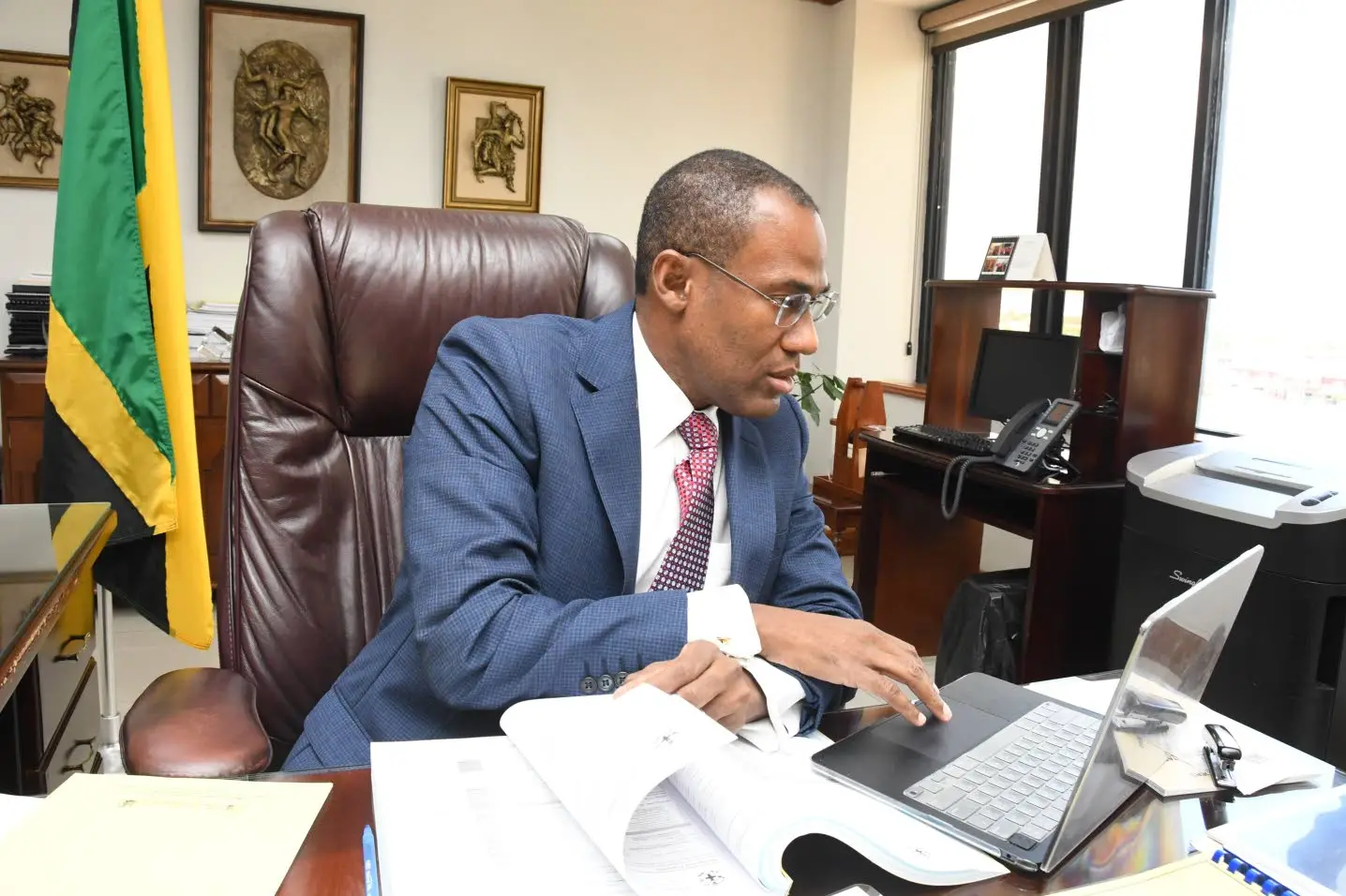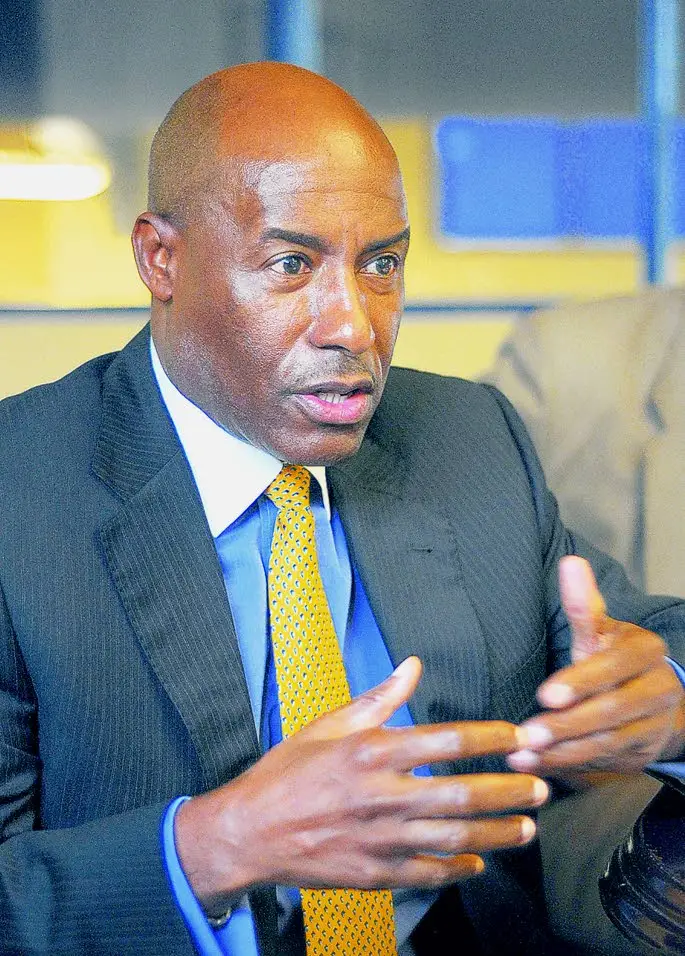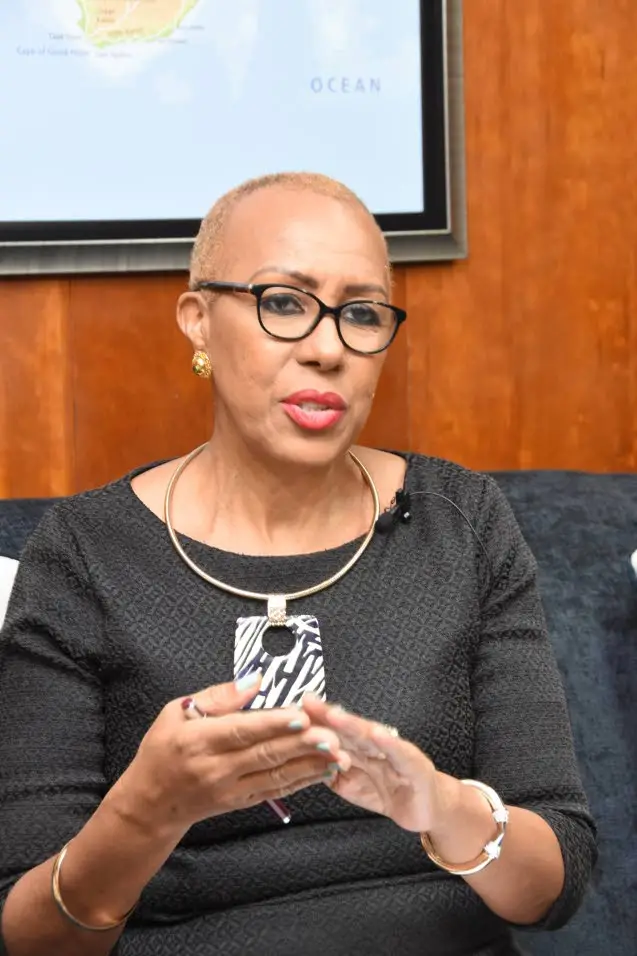
Give Audley Shaw the credit he deserves
Readers of this column will know that I admire the work that Dr Nigel Clarke has done in his capacity as minister of finance and the public service.
You can assign someone to a task, but you will never know what he/she is capable of until you see him/her in action as he/she takes charge of the portfolio to which he/she is assigned. Whatever our hopes and expectations, they really amount to nothing until we see the practical manifestations of his/her work.
Well, Jamaicans have seen it with Dr Clarke. This is the reason a great number of them have expressed anxiety as he moves to Washington, DC, as one of the four deputy managing directors of the International Monetary Fund (IMF). This latter clarification is very important in terms of the facts, because media houses have tended to present the news of Clarke’s appointment in a manner which suggests that he will be the deputy managing director without being clear that he will be one of four.
Nevertheless, this is a very important international appointment which says a great deal not only about the sagacity of the minister but the high esteem in which he is held by such an important body. Jamaicans can only be proud that a son of the soil has been given this honour. It does the country proud to know that if any of its citizens exerts himself/herself, demonstrates the necessary discipline, and holds fast to his/her God-given talents, his/her star can shine anywhere in the world.
Much has been said about Clarke’s tenure at the Ministry of Finance and how he has almost single-handedly performed a miracle in the stabilisation of the country’s fiscal space and economic viability. Often you hear about what Clarke has done, but truth and perspective will recognise that though Clarke did well in advancing the portfolio, there are important antecedents that must not be denied.
One of these is the signal work that has been done by Audley Shaw as minister of finance under the then Bruce Golding Administration. It is true that what Clarke has achieved has largely dwarfed the work of Shaw. We are a people who suffer from short memories, but we must not forget the platform on which Clarke stood in advancing the economic prospects of the country.
We cannot forget too easily, for example, Shaw’s dexterity, even in Opposition, in ferreting out some of the scandalous work of the then P J Patterson Administration. At every budget presentation you could expect a new scandal to be announced. His tenacity in being a wasp in the hide of then Finance Minister Omar Davies was legendary. The “run wid it” scandal in which deficits were allowed to run to facilitate political advantages to the ruling People’s National Party (PNP) was a case in point.
Shaw learnt on the job when the Jamaica Labour Party (JLP) formed the Government. Important structural and institutional frameworks were established to ensure that the reckless financial policies of the past were not repeated. The no new taxes scenario, which Clarke has rightfully boasted is one of his major achievements, began with Shaw. Importantly, Clarke built on the initiatives that were started by Golding, with Shaw at the helm, and which continued under Holness and Shaw until the latter was replaced by Clarke as finance minister.
It must not be forgotten, too, the important work done by the Portia Simpson Miller Administration under her finance minister, Dr Peter Phillips. If we are talking about contexts and perspectives in this period of work, this contribution cannot be denied, even if it was done under the watchful eyes of the IMF. I see that former Finance Minister Dr Omar Davies has weighed into the discussion by seeking to give a different perspective on the matter of the IMF and Clarke’s appointment. In a September 1 article in the Sunday Gleaner entitled ‘Minister Clarke’s new job: A different perspective’, he seemed not to be too hopeful that Clarke’s appointment would change anything for the better for Jamaica. He seems to be still haunted by his and the Patterson Administration’s experience with the IMF.
What was noticeable in the article is that he studiously avoided any mention of the work done by Phillips, and how against great odds, with obvious pressure from his own brethren, he was able to successfully meet the IMF targets, which laid the groundwork for what was to come when Holness succeeded Simpson Miller. This was all part of the “mix of effort” which has led to the success reaped so far. To deny this is not to be faithful to the truth.
It is to Clarke’s credit that he brought a certain intellectual passion and penchant for numerical analysis to the job, which exceeded the expectations of many. Thus, his work caught the eye of the international community and hence his new appointment. But in acknowledging this signal honour, it would not be lost on the wise that however great a person is there is one that is greater than him. There is no such thing as the greatest, in human terms. Certainly not in a situation in which you are building on the platform of those who have gone before you. We must not forget, as some seem to do, the herculean tasks performed by those who went before and who tend to get lost in the halos of praise of those in the present. Sometimes I think that Shaw has not been given the credit he justly deserves.
All eyes now turn in anticipation of who will replace Clarke. There is enormous talent inside and outside of the Government that can do a commendable job. A good philosophy of fiscal prudence has been built into the financial architecture of the Holness Administration. This will be a good platform on which any successor can stand and continue building. I, therefore, do not share the pessimism or fear of some who, with Clarke’s departure, believe the country is in financial peril. The leader of the Opposition’s innuendoes to this effect are asinine at best.
With a general election to be held by September 2025, Holness will have to determine whether he will go outside of the Government or Parliament to choose a successor. This would entail an election, as the finance minister has to come from the Parliament. Would he want to risk a test election, perhaps just six months away from the general? He has the option of taking charge of the office himself and choosing someone like an Aubyn Hill to carry the daily weight of the portfolio for the time being. He can also choose someone from within, say a Fayval Williams. But anyone who is chosen will have a short tenure.
The greatest burden will be to chart the course for the next budget year, that’s if Holness does not call the general election before then. Whatever the decision, we need not fear any serious impediment to the financial integrity of the country.
Dr Raulston Nembhard is a priest, social commentator and author of the books Finding Peace in the Midst of Life’s Storms; Your Self-esteem Guide to a Better Life; and Beyond Petulance: Republican Politics and the Future of America. He hosts a podcast— Mango Tree Dialogues — on his YouTube channel. Send comments to the Jamaica Observer or stead6655@aol.com.


























